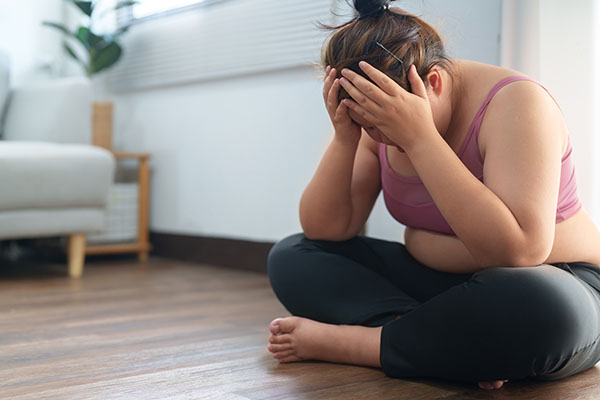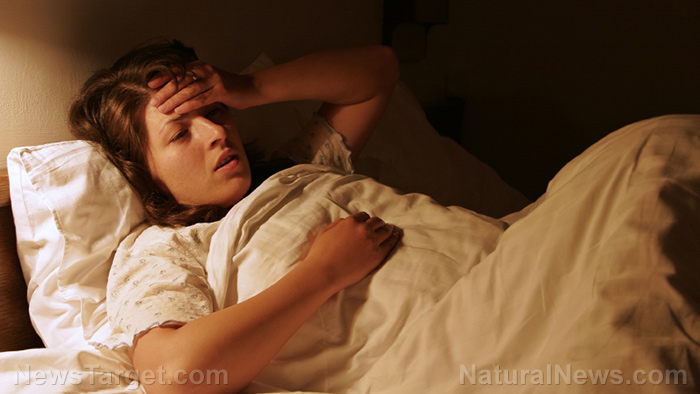State of insomnia: Study ranks California as the No. 1 most sleep-deprived state
07/27/2023 / By Olivia Cook

California holds the distinction of being the most sleep-deprived state, according to a study.
Sleep experts from Amerisleep recently went on the hunt to find the most sleep-deprived states, reported Sleepopolis. Using the Google Keyword Planner, they compiled a list of 96 terms relating to sleeping disorders and sleep, analyzed them and calculated a monthly search volume per 100,000 residents in each state over the last year.
The study illustrated that people are searching for causes or symptoms of various sleep disorders, such as insomnia, sleep apnea and sleep paralysis – all of which have lifestyle changes as root causes. Air pollution, light pollution, noise pollution, physical activity, screen time, stress and work-life balance are just a few of the many reasons why people have trouble falling and staying asleep each night. (Related: 3 Reasons why Americans suffer from sleep disorders.)
California topped the list with an average of 805 monthly searches, with “sleep apnea treatment” and “insomnia treatment” being the top search keywords from the Golden State. Maryland landed behind California, with an average of 770 searches per month.
New York state landed on the No. 3 spot with an average of 765 monthly searches. “Sleep music” and “sleep meditation” were some of the most searched terms in the Empire State and home of New York City – dubbed “The City That Never Sleeps.”
Massachusetts ranked fourth in the list, with an average of 754 monthly searches. Meanwhile, Nevada landed at No. 5 with an average of 753 monthly searches – just one point behind the Bay State.

Georgia, Connecticut, Virginia, Texas and New Jersey took the sixth to tenth places in the list, in that order.
Many Americans struggling to get a good night’s sleep
The list shows that from the East Coast to the West Coast, many Americans are struggling to get a good night’s sleep. They may be suffering from one or more sleep issues, leading them to turn to the internet for solutions.
Here are some of the sleep issues Americans search for:
Insomnia
Insomnia is the most common sleep disorder, with a third of adults suffering from it at some point. It’s not just having trouble falling asleep, however. It also can include the inability to stay asleep, fall back asleep after waking or all three. According to SleepFoundation.org, “many factors may contribute to insomnia – including stress, medications, and an individual’s sleep habits and environment.”
Sleep deprivation
SleepFoundation.org defines sleep deprivation as the state when someone does not get the amount of sleep they need – preferably between eight and 10 hours. It is estimated that sleep deprivation affects around one-third of Americans, with increased prevalence in recent years. Symptoms of sleep deprivation can include daytime sleepiness and fatigue; impaired memory; reduced motivation; slowed thinking; and symptoms of anxiety or depression, such as mood swings.
Sleep apnea
Sleep apnea is a potentially serious sleep disorder in which breathing repeatedly stops and starts. Those affected by the disorder often snore loudly and feel tired even after a full night’s sleep. It has three main types, with one arising as a consequence of treatment.
Obstructive sleep apnea (OSA) is the most common form that occurs when throat muscles relax and block the flow of air into the lungs. Meanwhile, central sleep apnea (CSA) occurs when the brain doesn’t send proper signals to the muscles that control breathing.
Treatment-emergent central sleep apnea (TECSA), the third kind of sleep apnea, happens when someone has OSA — diagnosed with a sleep study — that converts to CSA when receiving therapy for OSA. TECSA is also known as complicate sleep apnea.
Getting good quality sleep is incredibly important, on the same level as eating a nutritious diet and exercising regularly and consistently. For the first two disorders, there are sleep aids available on the internet, free of charge. A trip to your healthcare provider, meanwhile, can help address sleep apnea and prevent it from worsening.
Visit Health.news for more stories about sleep and sleep disorders.
Watch this video that discusses the importance of sleep.
This video is from the PatchSDA channel on Brighteon.com.
More related stories:
Nap desks cash in on sleep deprivation epidemic by letting workers sleep at the office.
How to overcome sleep deprivation during a survival scenario.
Nine signs of sleep deprivation – Do you get enough sleep?
Sources include:
Submit a correction >>
Tagged Under:
California, Central sleep apnea, complex sleep apnea, health science, insomnia, Mind, mind body science, obstructive sleep apnea, real investigations, research, sleep, sleep apnea, sleep deprivation, sleep disorders
This article may contain statements that reflect the opinion of the author





















